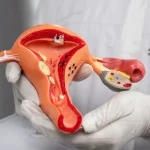
One of the most important decisions in IVF is determining how many embryos to transfer. While transferring multiple embryos may seem like a way to increase the chance of pregnancy, it also raises significant risks, especially for the mother and the babies.
Single Embryo Transfer (SET)
SET involves transferring one embryo, often a high-quality blastocyst. This approach significantly reduces the chance of twins or triplets while maintaining strong success rates, especially in younger women.
Double Embryo Transfer (DET)
DET may be considered in cases where patients are older, have lower embryo quality, or previous failed cycles. However, it increases the risk of multiple pregnancies, which can lead to complications like preterm birth and low birth weight.
Risks of Multiple Pregnancies
- Preterm delivery
- Low birth weight
- Gestational diabetes
- Preeclampsia
- Higher NICU admissions
For the mother, multiple pregnancies also increase physical strain and complications.
What Guidelines Recommend
The American Society for Reproductive Medicine (ASRM) generally recommends :
Women under 35 : Single embryo transfer (SET)
Women 35–37 : One or two embryos
Women 38–40 : Up to two embryos
Women 41+ : Up to three embryos (rare cases)
These guidelines aim to balance success with safety.
Role of Genetic Testing (PGT)
With preimplantation genetic testing (PGT), doctors can select chromosomally normal embryos, making single embryo transfer even more effective and safe.
Patient Story
John and Maria, both 34, initially wanted to transfer two embryos, hoping for twins. After learning the risks, they opted for a single tested blastocyst. They now have a healthy baby girl and are grateful they avoided the complications of multiples.
FAQs
Q: Does transferring more embryos guarantee pregnancy?
Ans : No, more embryos increase risk but don’t guarantee success.
Q : What if I want twins?
Ans : While many families dream of twins, physicians prioritize safety. Healthy singleton pregnancies have the best outcomes.
Q : Can unused embryos be stored?
Ans : Yes, embryos can be frozen for future use.
Conclusion
The number of embryos transferred should be based on age, embryo quality, medical history, and family goals. At Surrogacy4All, we recommend single embryo transfer in most cases to protect both mother and child while maintaining excellent success rates.
Learn more at : Click here
Contact – info@surrogacy4all.com | Call – 1-212-661-7177

Rashmi Gulati
Rashmi Gulati, MD, provides innovative, individualized health care that nurtures mind, body, and spirit. Since 2004 she has been the medical director at Patients Medical, where she delivers comprehensive personalized health care, treating each patient as a respected, unique individual. Through their integrative health care center in the heart of Manhattan, Dr. Gulati and her colleagues have become premier care providers serving patients locally and throughout the world.





